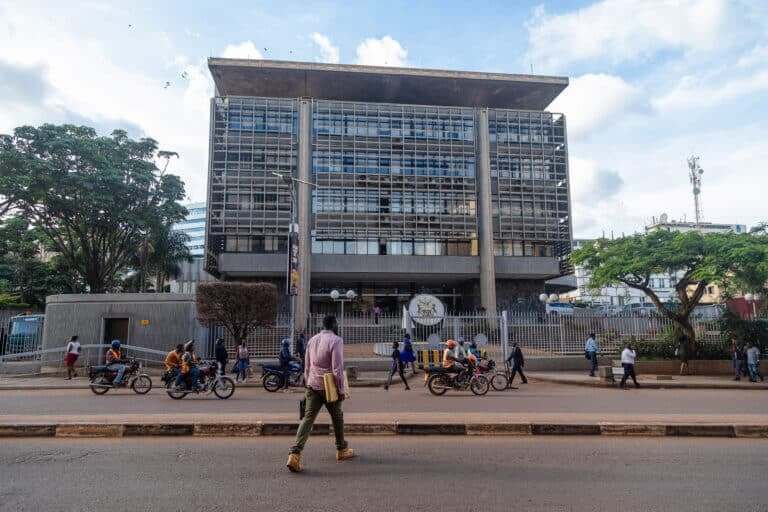The Bank of Uganda (BoU) on Monday kept its benchmark lending rate unchanged at 9.75% for the fifth consecutive policy meeting, as headline inflation fell to its lowest level in seven months.
The decision comes three days after S&P Global Ratings upgraded Uganda’s sovereign rating outlook to “positive” from “stable,” citing stronger growth prospects and rising per capita income.
According to a statement by BoU, the move reflects its dual mandate of containing inflation while supporting sustainable economic growth.
“This decision underscores our commitment to safeguarding price stability while fostering an environment conducive to growth in a dynamic macroeconomic landscape,” the statement said.
The Central Bank Rate (CBR) band remains at ±2 percentage points, with the rediscount and bank rates set at three and four percentage points above the CBR, respectively. This translates to a rediscount rate of 12.75% and a bank rate of 13.75%.
The Monetary Policy Committee (MPC) emphasised that the current CBR level is appropriate for maintaining inflation near the medium-term target of 5%, while supporting socio-economic transformation. Any future adjustments will be guided by incoming data and evolving domestic and global risks.
Inflation has remained subdued, buoyed by prudent monetary policy, a stronger Ugandan shilling, and favorable energy prices.
Data from the Uganda Bureau of Statistics show annual inflation fell to 3.45% in October 2025, down from 4% in September, marking the lowest reading since March. Core inflation declined to 3.4% year-on-year, below the central bank’s medium-term target of 5%.
While the domestic macroeconomic environment continues to strengthen, the MPC remains cautious of potential global and domestic shocks that could influence the near-term outlook.
The central bank also revised down its core inflation forecast to 4%-4.5% for the fiscal year, from an earlier 4.5%-4.8%, while projecting economic growth of 6.5%-7% in 2025/26, up from a previous 6%-6.5%.
The MPC’s decision reflects a careful balancing act: supporting Uganda’s steady growth momentum, safeguarding purchasing power, and ensuring macroeconomic stability amid a backdrop of improving fiscal and monetary conditions.










